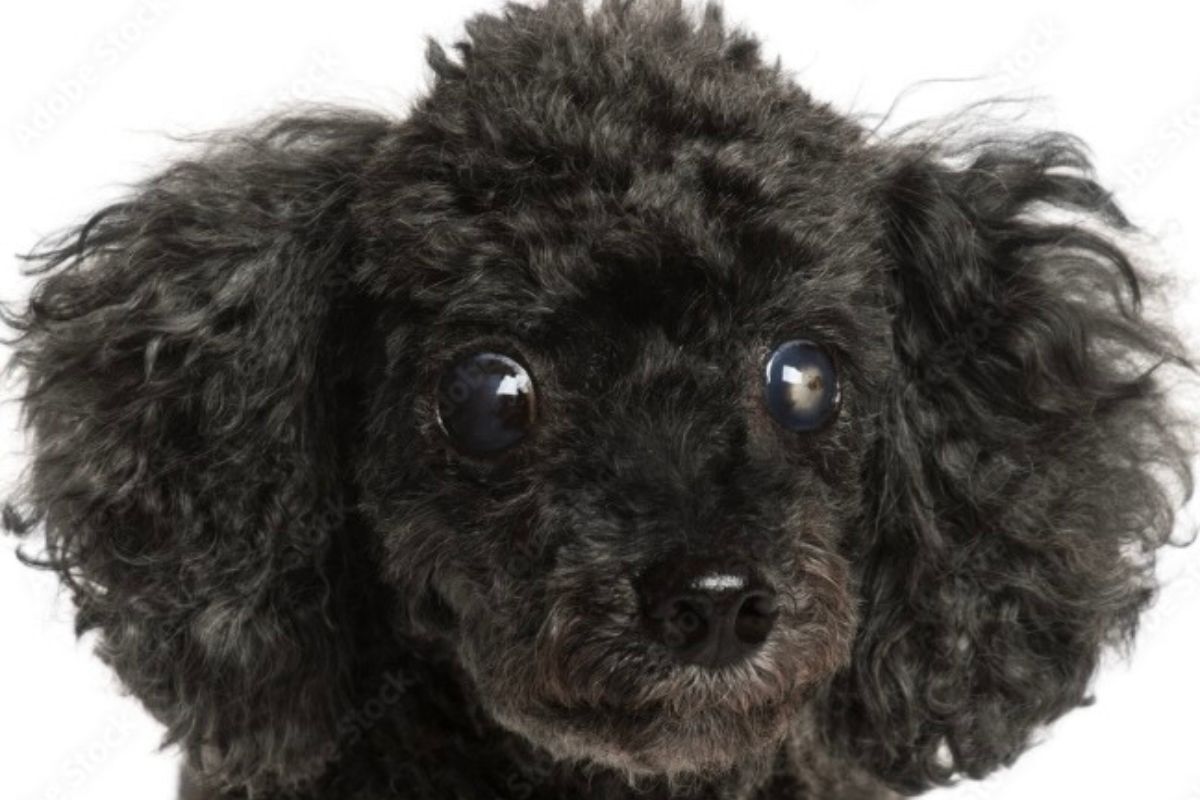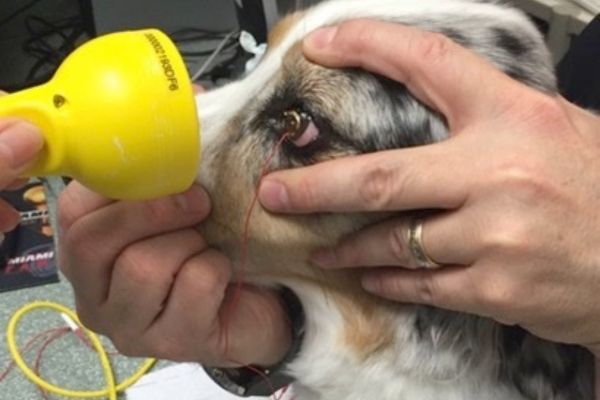Pet Progressive Retinal Atrophy (PRA) in Spring, TX
North Houston Veterinary Ophthalmology provides expert diagnosis and management of Pet Progressive Retinal Atrophy (PRA) in Spring, TX.

Pet Progressive Retinal Atrophy
Progressive Retinal Atrophy (PRA) is a genetic condition that leads to gradual vision loss and eventual blindness in most affected pets. At North Houston Veterinary Ophthalmology, we specialize in diagnosing and managing PRA to help your pets maintain the best quality of life, treating and restoring their vision with delicate, comprehensive care.

What is Pet Progressive Retinal Atrophy (PRA)?
PRA is a hereditary disease affecting the retina’s ability to function. It is common in breeds such as Labrador Retrievers, Miniature Schnauzers, Miniature and Toy Poodles, Siberian Huskies, Irish Setters, and Cocker Spaniels, though mixed breeds can also be affected. PRA impacts the photoreceptor cells in the retina, which are responsible for capturing light and transmitting visual information to the brain.
Clinical Signs of Progressive Retinal Atrophy
There are multiple forms of PRA. Early signs of PRA include difficulty seeing in low light, often called “night blindness.” As PRA progresses, it affects both rod (black and white) and cone (color) photoreceptors, leading to complete blindness over several months or years. Additional signs include:
- Dilation of Pupils: Pets with PRA often have dilated pupils as their eyes try to capture more light.
- Cataracts: Some pets develop cataracts alongside PRA, further impairing their vision.
Diagnosing Progressive Retinal Atrophy
At North Houston Veterinary Ophthalmology, we use advanced diagnostic tools and techniques to identify PRA early. Our comprehensive approach includes:
- Complete Ophthalmic Examination: A thorough eye examination to detect retinal abnormalities.
- Electroretinography (ERG): This non-invasive, specialized test measures the retina’s electrical responses to light stimuli.
- Genetic Testing: Identifying specific genetic mutations responsible for PRA, especially in high-risk breeds.
Managing Progressive Retinal Atrophy in Pets
Currently, there is no cure for PRA. However, our North Houston Veterinary Ophthalmology team focuses on providing supportive care to manage the condition and maintain your pet’s quality of life. Management strategies include:
- Regular Eye Examinations: Monitoring PRA’s progression to recognize potential ocular complications that can occur with PRA.
- Environmental Adjustments: Make changes in your pet’s living environment to ensure safety and comfort as their vision declines. This includes using textured rugs, maintaining consistent furniture placement, and providing audible cues.
- Nutritional Support: Dietary supplements help support retinal health and may help to slow the progression of PRA.
Why Choose North Houston Veterinary Ophthalmology?
Choosing North Houston Veterinary Ophthalmology means partnering with a dedicated team experienced in managing Pet Progressive Retinal Atrophy (PRA). Our commitment to compassionate care and advanced diagnostics ensures your pet receives the best possible support. Key benefits of our services include:
- Expertise in Veterinary Ophthalmology: Extensive experience and specialized training in pet eye diseases.
- Comprehensive Care Plans: Tailored strategies to suit each pet’s unique needs.
- Advanced Diagnostic Tools: Utilizing the latest technology for accurate diagnosis and monitoring of PRA.
- Client Education: Providing pet owners with the knowledge and resources to care for their pets effectively.
Contact Us
If you suspect your pet may show signs of PRA or need support managing an existing diagnosis, contact North Houston Veterinary Ophthalmology today. We are here to help you and your pet navigate the challenges of PRA with compassion and expertise. Contact us to schedule an appointment or learn more about our services.